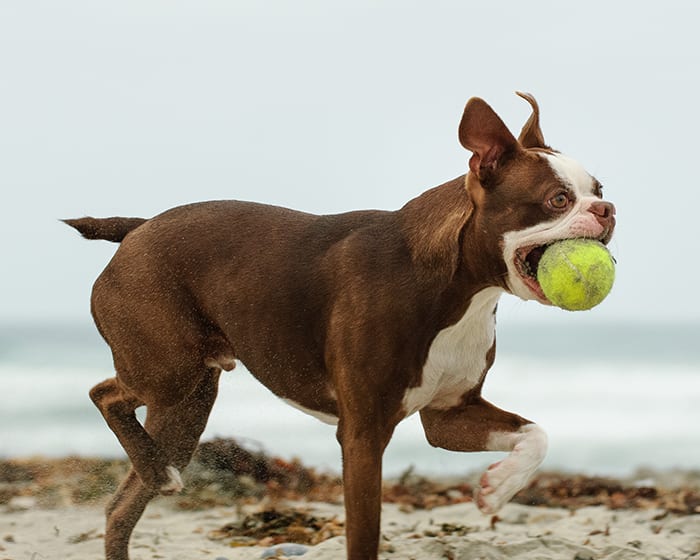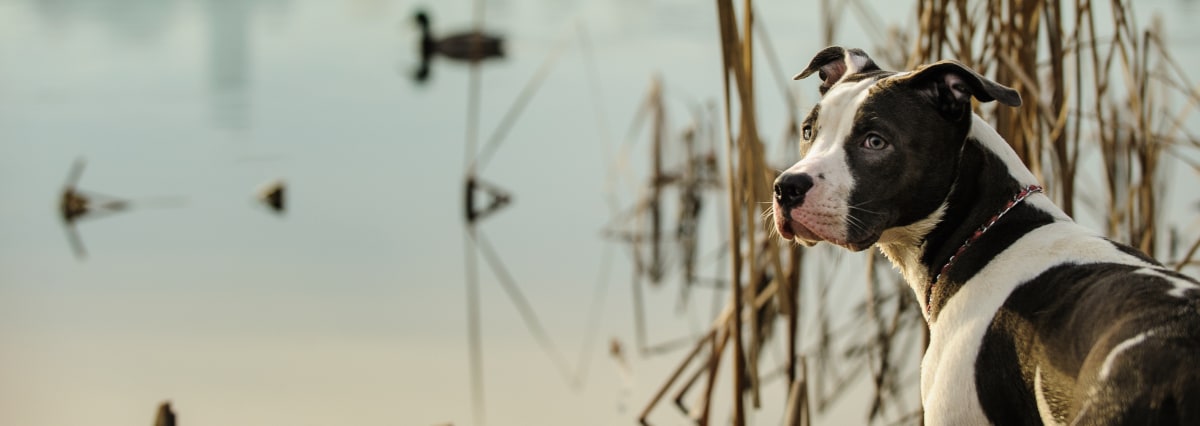Orthopedics
At Apple Valley Animal Hospital, we refer all veterinary orthopedic surgeries to a board-certified orthopedic surgeon, which puts your pet’s safety, comfort, and results at the forefront of treatment.
What is orthopedic surgery?
Veterinary orthopedic surgery encompasses surgical procedures, which address the skeletal systems, joints, and the soft tissues which adjoin them like cartilage, ligaments, and muscles.
Our hospital has advanced diagnostic and imaging tools to help us provide an effective and accurate orthopedic diagnosis.
All of our orthopedic surgeries are referred to a board-certified orthopedic surgeon, located about an hour from our hospital, so you can rest assured that your pet will receive the highest quality care and expertise.

Common Orthopedic Conditions
The following are some of the most common orthopedic conditions affecting dogs and cats:
Cruciate Ligament Tears
In dogs, like in people, a torn cruciate ligament needs to be surgically repaired to avoid arthritis. Many different kinds of procedures may be used to repair this injury, often depending on the size of the dog.
CCL surgery in dogs may also include techniques aimed at providing stability to the injured joint.
Luxating Patellas
The patella (or knee cap) sits at the end of the femur in a cartilaginous groove. A luxating patella happens when the knee cap is displaced from its natural position. Knee cap problems are common in many dog breeds both small and large.
Luxating patellas are a cause for surgery. Especially when animals can develop significant lameness as a result. The goal of surgeries of this nature is to keep the patella in its proper location all the time.
Disc Disease
Dogs can develop disc problems in the back and neck just like humans. Certain breeds like Poodles, Dachshunds, Cocker Spaniels, and Lhasa Apsos commonly suffer from these sorts of problems. Disc problems are more common in larger than smaller dogs
The sooner surgery is performed, the better the prognosis. If your dog has advanced disc disease, they should have surgery as soon as possible.
Hip Dysplasia
Hip dysplasia is a medical term for when a hip socket doesn't entirely cover the upper thighbone of a dog, allowing the joint to become dislocated quite easily. This condition is commonly found in Golden Retrievers, German Shepherds, and other large breeds of dog.
The most effective solution for this condition is often total hip replacement. The whole joint is replaced with metal and plastic implant through surgery to return hip function to normal.

Orthopedic Surgery FAQs
- What happens during the surgical consultation?
During a consultation with our veterinarians, we will perform a physical assessment of your pet and review their history. We will also conduct diagnostic tests according to your pet's specific condition and needs.
These tests can include blood work, CT scans, x-rays, biopsies, and ultrasounds. Once we receive the results. we will develop and discuss a surgery plan with you.
- Will the surgery and consultation happen on the same day?
No, the consultation is required for us to examine and test your pet's health before deciding what the best course of action is. Once the diagnostic tests we perform return results, from our lab, we will schedule a surgical appointment.
- How long will the surgery take?
Usually from two to four hours. However, the length of orthopedic surgery depends on the kind of surgery being conducted and your pet's specific condition and needs.
- Does my pet have to stay at the hospital overnight either before or after the surgery?
Depending on when in the day your pet's surgery will be conducted, they may have to be dropped off the night before their procedure.
Often, our patients will have to stay the night with us after their procedure for monitoring. Depending on the kind of surgery we performed and how quickly your pet recovered from anesthesia, they may be able to return home the same day!

